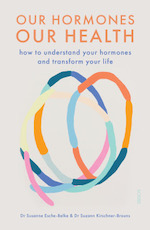Developing intimacy in marriage is not always easy, and people often ask how to survive marriage without intimacy, or whether a marriage can survive without intimacy.
After marriage and children, and for others, during menopause, the idea of actively seducing your partner often seems downright absurd. You may be able to just about muster the energy to watch Netflix in the evenings, but even then, you tend to fall asleep. When you have used up all your energy on your daily tasks and chores, and you finally fall into bed at the end of the day, exhausted, then all you want is to be left alone. Sexual overtures from a partner would not be welcome.
For those who used to really enjoy sex, this can come as a bit of a shock. Who would have thought things would change so much?
But is the general decline in sexual activity due to reduced sexual arousal, or a relationship pattern that has grown a bit stale? It has been shown that for most couples who have been married for many years, sex during the middle years is no longer central, but instead the relationship adapts to this new phase of life. However, it very much depends on the habits and behaviours that have been fostered in the relationship; there are couples who still enjoy frequent sex even after 30 years together.
Watch below: Seven things that you and your partner can do to strengthen intimacy in your marriage. 👫
During menopause, a woman’s physical needs change. They are scaled back in favour of a phase of inner reflection. You may want to focus on other things, on your secret desires and new ways of expressing your personality. You often hear women who have taken a different path say, “This is more satisfying than any partner or lover.” That can be the case—but it doesn’t have to be. They are not mutually exclusive; you can be passionate about spiritual matters, for example, and still be interested in sex.
Take a bold look at your sexual needs. Do you still feel desire and, if so, are your desires being met or have you been able to fulfil them yourself over the last few years? For those who have recently fallen in love, the days seem long as they look forward to the next time they will see their new partner. But how can sexual relationships between couples who have been together for a long time be revitalised? How do you feel about your own body? Do you feel desirable? How is your self-esteem?
If society persuades older women to think they are no longer desirable or beautiful, this can nip sexual desire in the bud completely. When a hormone imbalance is making a woman feel ill, or if she is stressed or depressed, clearly this will also have a significant impact on her libido.
We know—and this isn’t only through research—that women’s sexuality is a complex matter. Women’s desire works differently from that of men. Women react less to optical stimuli. A man’s physique or appearance can be sexy but that’s not always necessary for women. Feeling cared for, hearing expressions of love and having an attentive partner . . . it may sound like a cliché, but these factors can increase female desire. If women are not stimulated on an emotional and spiritual level, then not much is likely to be happen on a physical level either. Whether a woman’s sex life is fulfilling depends on many factors: sex education, self-image, age, cultural background, good and bad experiences, general health and any kind of ongoing pain (which in the case of vaginal pain could occur because of dryness due to lack of oestrogen).
Of course, a partner’s empathy and the quality of the relationship in general play a decisive role. That is, perhaps, one reason the Viagra pill for women—to increase sexual desire—was such a failure. Female sexuality is too complex to be switched on and off with a pill, not to mention the side-effects.
Studies have shown that a fulfilling love life does not depend on age so much as on a woman’s health. If a woman is in good health, then there should be nothing standing in the way of good sex. This is why it is so important to take care of your own health if you want a fulfilling sex life.
What we can all do without are the exhausting comparisons between ourselves and other women; comparisons that leave us feeling inadequate because we don’t fit the slender, youthful ideal. This causes stress. All those associations that are related to getting older, for example the notion of being “past your best” can be incredibly stress-inducing. These psychological factors lead to sexual problems in many women, without there being a physical cause.
Read: What to do if you and your partner have different sex drives
Older women who are in relationships in which they feel secure and valued often have a particularly good sex life. There is no reason this shouldn’t continue into old age. Women in perimenopause and menopause today feel significantly younger than previous generations did. They are often more educated about sex and also more open to experimenting—not least because the risk of an unwanted pregnancy is much reduced. This means that women can enjoy sex more openly and without fear. Many women report that this freedom and also their acceptance of their own body in this phase of life leads to an unprecedented sexual curiosity. All of a sudden, they dare to express their desires and try out things that previously only took place in their imagination. And yes, they feel desirable and sexy.
We would also like to talk about sensuality. You discover beauty in small things, breathe in the smell of herbs or a new favourite perfume and sharpen your senses. Feeling, smelling, tasting and touching stimulate the reward system and ensure the distribution of, among other things, dopamine and oxytocin. The rediscovery of sensuality in everyday life can be a way to reach more erotic sensuality. Like erotic massages, a foot, neck and back Thai massage, for example, has been shown to raise oxytocin, strengthen the immune system and lead to relaxation.
As we said earlier, some women do go off sex. They can’t bear the thought of it; the most they might want is some physical closeness with no expectation of sex. This might be a cause of tension with their partner, and some women don’t even want any physical contact at all. It’s totally natural and okay to experience these different phases; at the start of perimenopause there is an increase in desire but later on the libido decreases, though this may not present any problem provided your partner is compassionate and patient. The best thing to do is to communicate that the way you’re feeling is due to the stage of life you’re in. If a partner is understanding, it may help a woman to feel some desire again.

This is an edited extract from Our Hormones, Our Health: How to understand your hormones and transform your life, by Susanne Esche-Belke, Suzann Kirschner-Brouns (trans. Alexandra Roesch). Published by Scribe ($35)
How helpful was this article?
Click on a star to rate it!
0 / 5. 0
Be the first to rate this post!
Dr Susanne Esche-Belke & Dr Suzann Kirschner-Brouns
Related posts
Subscribe
Receive personalised articles from experts and wellness inspiration weekly!

